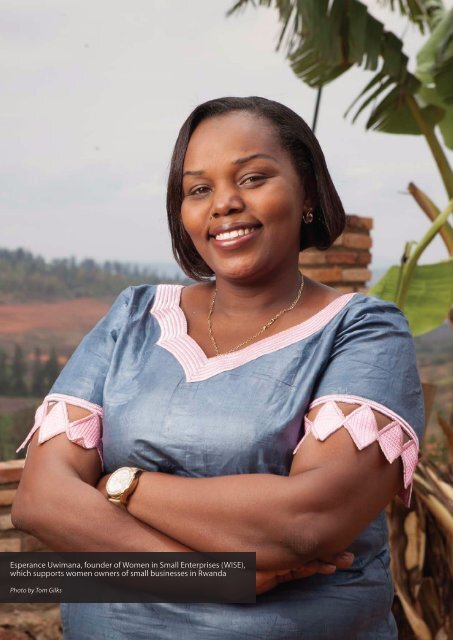EMPOWERING WOMEN BROADENING HORIZONS
3FNy301NtsS
3FNy301NtsS
You also want an ePaper? Increase the reach of your titles
YUMPU automatically turns print PDFs into web optimized ePapers that Google loves.
Recommendations and areas for<br />
further exploration<br />
Continued evaluation<br />
Since this work began in 2014, the Mentoring Women<br />
in Business Programme has continued to refine its<br />
model and expand its reach. Though these initial<br />
cohorts of mentee-mentor graduates now represent<br />
a small sample from the programme’s overall reach,<br />
the results they achieved provide relevant insights<br />
and a valuable longitudinal view of the impact of<br />
mentoring. It would be useful to undertake further<br />
evaluation of programmatic outcomes in the future,<br />
as resources and funding allow.<br />
Programme accreditation<br />
Few mentoring programmes have formal<br />
accreditation. One of the most well-known standards<br />
is the International Standards of Mentoring<br />
Programmes in Employment (ISPME). The Cherie Blair<br />
Foundation for Women might consider carrying out a<br />
self-assessment based on the application criteria and<br />
applying for the formal award.<br />
Improvement of survey tools<br />
The baseline data taken at the application stage<br />
contained a wide range of information, but some<br />
gaps existed due to survey design and technological<br />
glitches. The Phase 2 surveys aimed to fill these<br />
gaps. The consulting team provided insights on<br />
ways to improve the programme’s surveys, which<br />
the programme has since implemented. This will aid<br />
future analysis.<br />
Mentor accreditation<br />
The vast majority of mentors do not have a specific<br />
mentoring qualification. This does not mean that they<br />
are not ideally situated to provide mentoring support,<br />
but there could be value in offering accreditation to<br />
those mentors who are interested.<br />
Communities of practice and online content<br />
Mentees and mentors suggested the continued<br />
development of communities of practice. These<br />
working groups could bring together participants to<br />
discuss different industries, geographies or challenges<br />
(e.g., running a business while navigating a divorce).<br />
Some participants seemed unaware of the range<br />
of resources offered through the online platform,<br />
which suggests the need for continued promotion of<br />
existing resources among participants and alumni.<br />
Review of non-starters<br />
For early groups, the programme did not have a<br />
mechanism to quantitatively assess factors that<br />
prevented participants from graduating. Though the<br />
programme has now established this mechanism,<br />
due to the focus on specific cohorts and funding<br />
limitations, this report did not include a review<br />
of mentees and mentors who had to leave the<br />
programme early. This would be a useful point of<br />
exploration for future analysis.<br />
Esperance Uwimana, founder of Women in Small Enterprises (WISE),<br />
which supports women owners of small businesses in Rwanda<br />
Photo by Tom Gilks<br />
33


